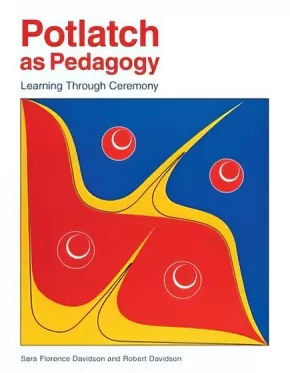Potlatch as Pedagogy: Learning Through Ceremony
Synopsis:
Inspired by Haida ceremonial practice, father and daughter present a model for learning that is holistic, relational, practical, and continuous.
In 1884, the Canadian government enacted a ban on the potlatch, the foundational ceremony of the Haida people. The tradition, which determined social structure, transmitted cultural knowledge, and redistributed wealth, was seen as a cultural impediment to the government’s aim of assimilation.
The tradition did not die, however; the knowledge of the ceremony was kept alive by the Elders through other events until the ban was lifted. In 1969, a potlatch was held. The occasion: the raising of a totem pole carved by Robert Davidson, the first the community had seen in close to 80 years. From then on, the community publicly reclaimed, from the Elders who remained to share it, the knowledge that has almost been lost.
Sara Florence Davidson, Robert’s daughter, would become an educator. Over the course of her own education, she came to see how the traditions of the Haida practiced by her father—holistic, built on relationships, practical, and continuous—could be integrated into contemporary educational practices. From this realization came the roots for this book.
Reviews
"Potlatch as Pedagogy is wonderfully wise, hopeful, heartful, eloquent, and loving! Every teacher candidate and teacher needs to read this book. The authors expertly evoke the history and culture of the Haida as they call forth the sadness as well as the hope and joy of generations of people who were misunderstood and mistreated. In this time of Truth and Reconciliation, we all need to attend to this book." —Dr. Carl Leggo, Professor, Department of Language and Literacy Education, University of British Columbia
Educator Information
For all teachers.
Recommended in the Canadian Indigenous Books for Schools 2019-2020 resource list as a Teacher Resource for grades 10 to 12 with reference to Social Studies.
Additional Information
200 pages | 7.00" x 9.00"

 Go
Back
Go
Back





